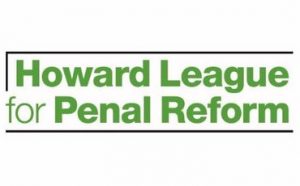 EDUCATIONAL PROVISION IN PRISONS AND SECURE TRAINING CENTRES in England is woefully inadequate for children in both quantity and quality, according to a new guide which outlines key steps that practitioners can take to address the problem.
EDUCATIONAL PROVISION IN PRISONS AND SECURE TRAINING CENTRES in England is woefully inadequate for children in both quantity and quality, according to a new guide which outlines key steps that practitioners can take to address the problem.
Education inside penal detention for children in England: an overview, published by the Howard League for Penal Reform and Independent Provider of Special Education Advice (IPSEA), reveals that more than two-thirds of children in custody have special educational needs (SEN).
These needs – which can include learning difficulties, speech, language and communication difficulties, and social, emotional and mental health problems – are often mislabelled, unrecognised and unmet.
Many children in custody who require the additional support of an Education, Health and Care plan do not have one. When plans are made, often they are of poor quality and specify support that is not provided.
The guide highlights the work that must be done to ensure that children have the same educational entitlements and provision in custody as they do in the community.
Claire Salama, Managing Solicitor at the Howard League for Penal Reform, said: “Children in prisons and secure training centres have a statutory right to a minimum amount of education each week. But the Howard League is aware from its legal work that resourcing issues in prisons have prevented children from receiving the education to which they are entitled – and this was happening even before the Covid-19 pandemic, during which provision stopped completely for a period.
“Our guide not only recommends that legal protections and frameworks around education in custody should be strengthened; it also advises professionals supporting children on what more can be done to improve provision here and now. Children must be supported to access their rights and, where those rights are not respected, be supported to bring legal challenges.”
Ali Fiddy, Chief Executive of IPSEA, said: “The disparity between the legal entitlements of children with SEN in penal detention and those in the community is stark and even the rights they do have are rarely realised. This is wholly unacceptable, particularly given the prevalence of unidentified and unmet SEN amongst the prison population.
“IPSEA is delighted to have produced this joint briefing with the Howard League for Penal Reform to raise awareness of the rights that children in penal detention do have under the Children and Families Act 2014 and associated regulations, and highlight the need for those rights to be strengthened.”
* Read Education inside penal detention for children in England: an overview here.
* Source: Howard League for Penal Reform